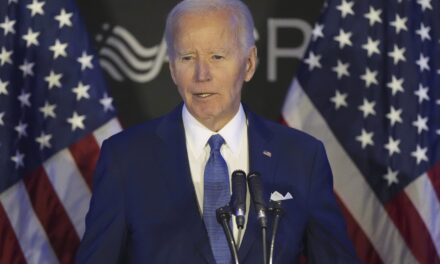This article is from: srnnews.com
ST. PAUL, Minn. (AP) — A transgender athlete should be allowed to compete in the women’s division at powerlifting events because she’s protected against discrimination by the Minnesota Human Rights Act, her attorneys urged the state Supreme Court on Tuesday.
USA Powerlifting rejected JayCee Cooper’s application in 2018 to compete in the women’s division of its events on the ground that she enjoys strength advantages over other women. Cooper sued in 2021, and the trial court sided with her.
But the Minnesota Court of Appeals sent the case back to the trial court in March, saying there were “genuine issues of fact” about whether USA Powerlifting excluded Cooper because of her transgender identity and whether the organization had a “legitimate business reason” for rejecting her. Cooper then took the case to the state’s highest court.
Cooper’s attorney, Christy Hall, said USA Powerlifting’s policy discriminates against all transgender women, regardless of their individual physical capabilities, and urged the justices to reverse the Court of Appeals decision.
“It holds that stereotypes about people’s bodies as a group may legitimately be used to discriminate against individuals,” Hall said. “For example, you could use the exact same logic to say women can’t be firefighters because firefighters need to be strong and women as a group aren’t as strong as men.”
Ansis Viksnins, an attorney for USA Powerlifting, argued that the law requires courts to answer the question of whether a defendant had a discriminatory motive, not just whether the action was discriminatory. He said the Court of Appeals was right to send the case back to the trial court to determine whether the sports group had a legitimate reason for barring Cooper from competing in its women’s division.
“I would suggest there would be a serious, chilling effect on women’s sports” if Cooper’s arguments prevail, Viksnins saoid.
Transgender people’s participation in sports has been a contentious issue across the country and was a hot topic in the fall elections. Republican Donald Trump put his opposition front and center in his presidential campaign. The LGBTQ-rights movement regarded Trump’s election as one of its biggest setbacks in its history.
Many Republican-led states have banned transgender people from competing in girls and women’s high school and collegiate sports. And the U.S. Supreme Court on Wednesday will take up the issue of gender-affirming care for transgender minors, which has been banned by Tennessee and 25 other Republican-led states.
In an indication of the intense interest in the Minnesota case, numerous athletes and organizations on both sides filed friend-of-the-court briefs, including former tennis champion Martina Navratilova, who was part of a group of 83 female athletes backing USA Powerlifting’s position. One of the organizations backing Cooper is the locally based LGBTQ+ rights group Gender Justice.
The Minnesota Human Rights Act contains broad protections against discrimination, including on the basis of sex defined broadly, and was updated last year to specifically include gender identity.
“The widespread support for Cooper and trans inclusion in sports only underscores that discrimination has no place in sports or society,” Jess Braverman, legal director at Gender Justice, said in a statement before oral arguments in the case. “No one should be denied the opportunity to pursue their dreams and ambitions simply because of who they are.”
USA Powerlifting argued in its brief that female transgender powerlifters have a significant advantage in a sport that relies on inherently on strength. The group noted that Cooper could compete in an open division it created in 2021 to serve all gender identities.
“If male-born powerlifters can compete against female-born athletes, we have not only failed in our responsibility to provide fair competition for our women competitors, but we have thrown the door wide open to eliminating other category distinctions such as age and weight,” USA Powerlifting President Larry Maile said in a statement.
The justices took the case under advisement and did not say when they would rule. Since the legal arguments were based largely on how the courts should interpret Minnesota law, the eventual decision won’t set a binding precedent for other states. But courts elsewhere faced with similar issues could choose to draw on the legal reasoning behind it.
Brought to you by www.srnnews.com





















